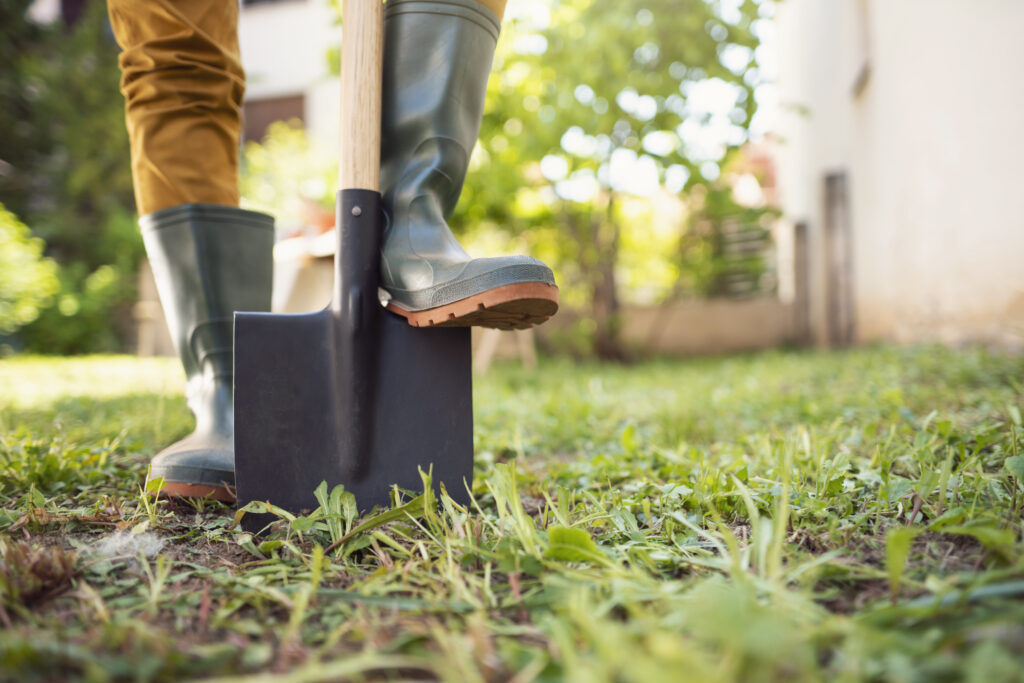Safety in Your Home
Tree Trimming
Look up and look out! Watch out for overhead power lines. Trees can pose a serious threat when they are growing around overhead power lines. Overgrown trees that cover power lines can create a number of electrical hazards, including:
- Potential hazard of electrocution
- Branches and limbs caught in power lines may become conductive. Individuals that are not experienced or qualified in tree trimming or removal may unexpectedly come in contact with power lines.
- Power lines can be unexpectedly pulled down to the ground by broken branches and limbs.
- Injuries or fires
- Branches, pole top pruners, and other tree trimming equipment can create potential fire hazards when in close proximity to power lines.
- Power interruptions
- Power interruptions can result when branches and limbs that break damage power lines during storms. When this happens, our crew is notified and work to fix the interruption as soon as it is safe.
Proper maintenance of trees growing around overhead powerlines is crucial to avoid potential electrical hazards & power interruptions. For your safety, click on the button for a guide to tree planting when electrical wires are nearby.
Please note that Essex Powerlines will only trim trees in emergency situations, such as a loss of essential service. If you notice branches near power lines on your property, please contact a local arborist to assess the situation and provide trimming maintenance. Essex Powerlines will provide disconnect/reconnect services at no charge to ensure the area is safe before trimming trees. Click here for more details.
Call Before You Dig
Are you putting in fence posts, planting a tree, excavating for a pool, deck or a new addition? Before you dig, think about what services might be buried in the ground because what you CAN’T see CAN hurt you!
What is at risk?
Damaging underground services can have serious consequences:
- Personal injury
- Loss of essential services, creating a safety risk for others
- Expensive restoration costs and potential legal actions
Having your utilities located before you dig is also the law under the Ontario Occupational Health & Safety Act (see Construction Projects 228).

ONTARIO ONE CALL
This is a FREE service for excavators and homeowners, 24 hours a day, seven days a week. Please call five full business days before you dig.
Utility Notification Service:
1-800-400-2255
www.on1call.com
Electrical Hazards in Floods – Flood Safety Information
There is a heightened risk of electric shock when water contacts electrical systems. To prevent serious injury or death, follow these electrical safety tips:
- DO NOT enter your basement if you know or suspect water has risen above the level of electrical outlets, baseboard heaters, furnace or is near your electrical panel. Electricity can move through water or wet flooring and cause a severe electrical shock
- In the event that flood water has risen above outlets, baseboard heaters or your furnace, covers power cords, or is near the electrical panel, contact Essex Powerlines immediately and arrange for us to disconnect power to your home.
- Please contact us at 519-737-6640.
- If you have water contact or damage to your electrical system, Essex Powerlines may not be able to restore power to your property until damage has been assessed and the necessary repairs have been made. Please follow these important steps:
- Please evacuate your home if water in your basement has risen above electrical outlets, baseboard heaters, furnace or electrical panel. Remember, DO NOT enter your basement until the power has been disconnected by the local electric utility.
- Contact a licensed electrical contractor to evaluate your home’s electrical system. He/she will determine if it is safe to have us restore power to your home.
- The licensed electrical contractor will file for an electrical permit with the ESA to maintain a record of any work. The contractor will notify the ESA when the work is complete, and the ESA Inspector will confirm the work has been completed safely and the power can be reconnected. At this point, the ESA will contact the local electric utility instructing that the reconnect is safe. Essex Powerlines will connect when it is able to do so. Remember to always keep a record of the ESA’s Certificate of Inspection for your records and insurance.
Stand-by Generators
The application of Portable Generators to supply power, in total or in part, to any facility must meet the equipment and connection requirements specified in the Ontario Electrical Safety Code and must be inspected to ensure proper connection and operating safety. To keep yourself and your property safe, and to minimize potential liabilities, ensure you arrange for an Electrical Inspection of any portable generator connection to your home wiring.
The Ontario Electrical Safety Code outlines specific requirements for connecting and operating Portable Generators in the Province to eliminate electrical fire and shock hazards. A licensed Electrical Contractor can assist you in ensuring the safe connection of a Portable Generator for your use, and will make arrangements for any inspection.
For more information, contact your Windsor Electrical Inspection Office at: 519-972-3110
DID YOU KNOW?
- It is illegal and unsafe to run a Portable Generator that has not been inspected
- You may be liable for any injury or death that occurs as a result of a generator that has been improperly or illegally installed or connected
- A Portable Generator that has not been inspected may be endangering members of your family, your neighbours, and Utility workers
Approved Meter Sockets
Please find the full list of approved Meter Sockets by clicking here.
Electrical Hazards at home
Be mindful of potential electrical hazards at home.
Damaged Wires
- When wires misshape, tear, or fray, they can cause electrical shocks or fires
- If you have a damaged wired, replace it as soon as possible
Overheating Circuits
- Electrical fires can start from overheated circuits
- Powerbars do not create a new power source. Be mindful when using power bars and do not plug an overabundance of appliances into the same outlet
- Never go above the amperage limit of a circuit. An overloaded circuit can cause fires. Typical signs of an overloaded circuit include blown fuses or circuit breakers that trip.
Extension Cords
- Never use an extension cord in place of a permanent outlet.
- Never connect extension cords together
- Extension cords easily fray. Make sure not to leave extension cords in frequently visited walking areas. They can also be a potential tripping hazard
Light Switch
- A damaged or loose light switch may leave wires exposed. Replace broken light switches immediately to avoid any hazards
Safety Tips
Here are some simple fixes to keep you and your family safe at home:
- Replace missing or broken cover plates immediately. Outlet covers create a barrier between people and exposed wires
- Small kids often want to explore new things and put them in their mouths. Keep cords away from little hands and mouths.
- Teach children how to plug in and unplug safely. Never overload outlets by plugging in too many cords. Use an approved power bar that has surge protection. When its time to unplug, do not yank cords from the wall. This can cause damage to cords, appliances, and the outlet.
- Check all of your cords. If a cord is frayed, replace it. Tape won’t protect you from a shock.
- If you have electricity work that needs to be done at home, call a Licensed Electrical Contractor for the work
- Install tamper-resistant receptacles to protect younger children from shocks. They have special shutters that cover the plug slots and help prevent little fingers or objects from going into the outlet.
- Install ground fault circuit interrupters (GFCIs) in any room with water to help protect from a shock.
- Safety by the pool
DID YOU KNOW?
Even low-voltage shocks can have serious long-term after effects, such as memory loss, anxiety, pins and needles, and chronic pain.
Thinking about getting a new pool?
Don’t forget to check with us about electrical safety!
Electrical safety around swimming pools is important. Hazards that are commonly overlooked is the presence of overhead electrical wires. When installing your pool, take a moment to look up and look out!
If electrical wires are located within 3 metres of the edge of the pool (measured horizontally), there must be 4.5 metres of vertical clearance between the wires and the highest point of the pool area. This includes diving boards, slides, and decks.
Remember, many power lines are underground. Cutting through an underground line while digging can be deadly. Neighbourhoods can be totally blacked out by a severed underground cable, so you can imagine how dangerous this can be to the individual holding the shovel or spade! If you are thinking of putting a pool in your backyard, let us know before you dig. We will send a service representative to do an underground cable locate on your property. Remember, this is a service FREE of charge.

